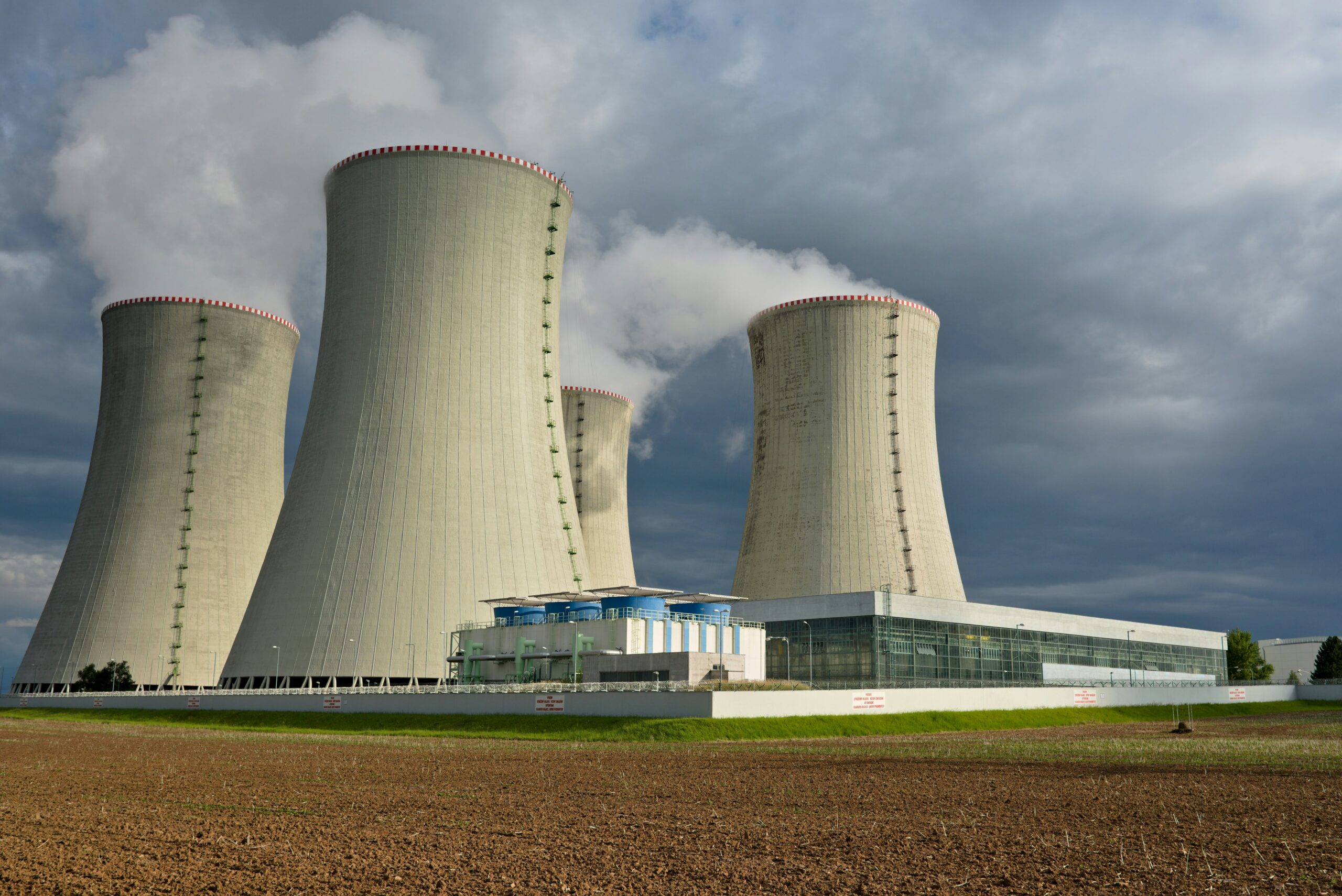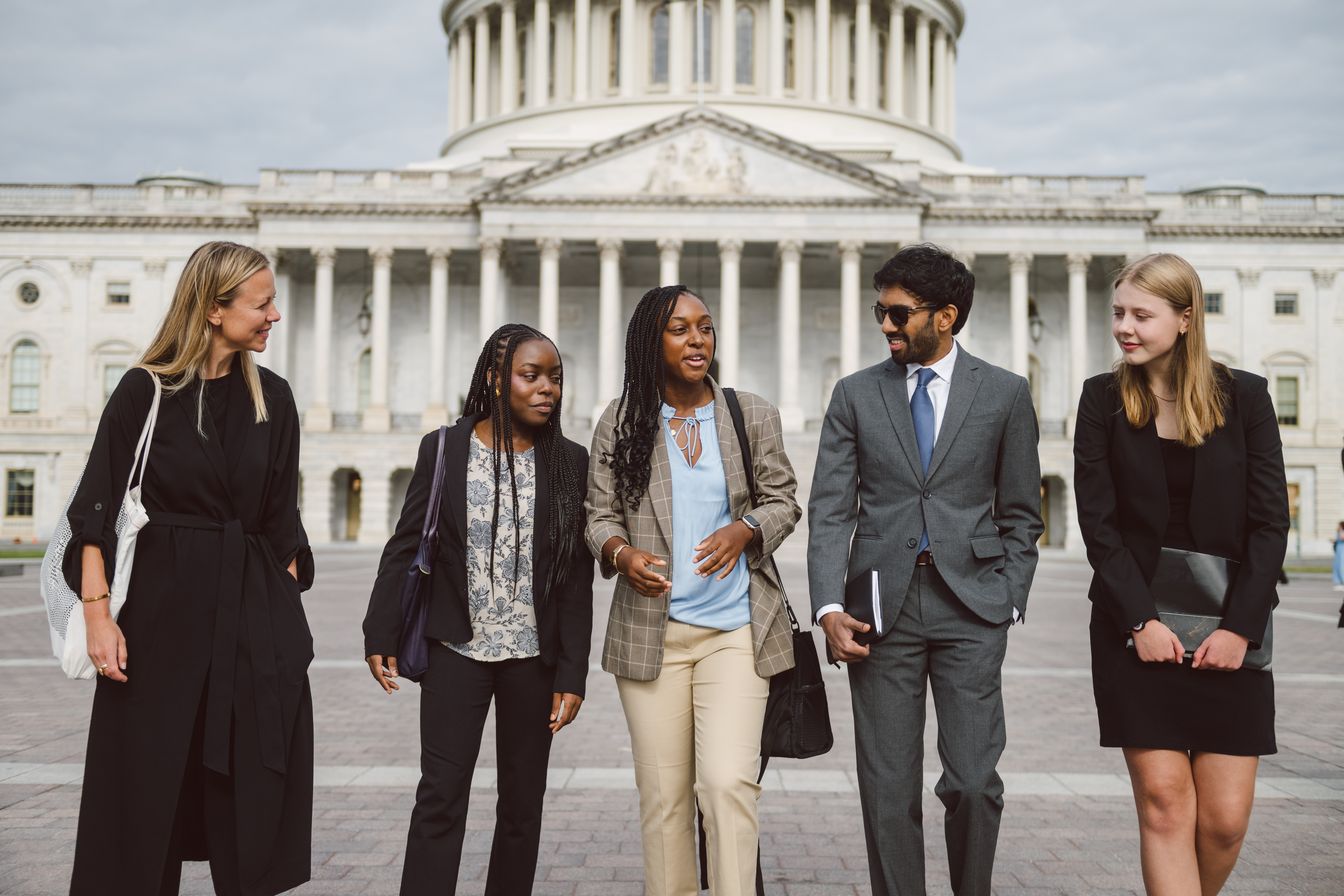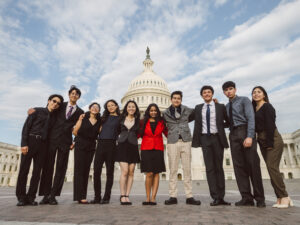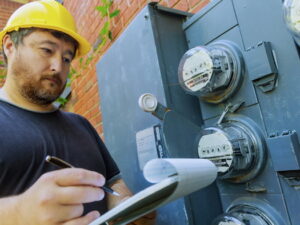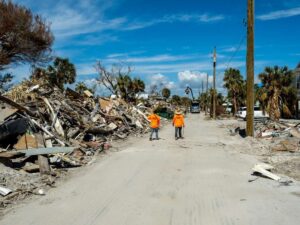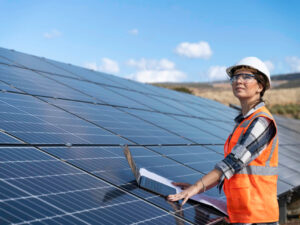Is Nuclear Energy Clean? (And Are We Ready For It?)
by Elissa Tennant
NOTE: At the time of posting, July 2025, this blog contains the most accurate and up to date information available. Nuclear energy is an evolving industry and certain statistics and legislative actions will change with the passing of time. We will continue to update this blog as needed.
The last decade has seen a major push, both globally and in the U.S., for clean energy sources. According to the UN, fossil fuels still account for the majority of global energy production, but renewables are gaining ground. Currently, around 29% of electricity worldwide is generated from renewable sources. In the U.S., solar power and electric vehicle sales broke records in both 2023 and 2024 and we officially reached our 200th clean energy manufacturing site.
As the planet transitions from fossil fuels to clean energy to reduce our carbon emissions, countries all over the world are searching for ideal sources of sustainable, renewable power. Of the available options, nuclear has emerged as a controversial but potentially powerful player.
Nuclear energy could be a major clean energy solution, there are significant hurdles before we can scale it responsibly and effectively. High upfront costs, nuclear waste management, regulatory hurdles, and, especially, public perception of safety after major incidents like Chernobyl have prevented all-in investment in America’s nuclear power. It’s a promising solution, but are we truly ready for it?
What is “clean” energy?
Clean energy is defined as energy sources that create low or no carbon emissions and cause minimal impact to the environment. Examples of commonly accepted clean energy sources include:
- Solar
- Wind
- Hydroelectric
- Geothermal
Nuclear energy is generally more controversial than other energy sources, but is still considered clean because it does not produce carbon pollution during operation. At the moment, despite roadblocks, nuclear energy provides about 20% of the nation’s electricity. It’s unclear if this number will grow or shrink in the coming years.
Is Nuclear Energy Actually Clean?
Yes, nuclear energy is a source of clean power, but like any source of energy, it comes with pros and cons.
Pros of Nuclear Energy
- No carbon emissions during operation
- High energy output with small physical footprint
- Reliable, baseload energy (unlike intermittent renewables)
- In some areas, infrastructure and technology for nuclear are already in place
- Advancements in small modular reactors (SMRs) and next-gen designs show promise
Cons of Nuclear Energy
- Nuclear waste and its long-term management
- Small but existing risk of dangerous failure
- Energy- and resource-intensive construction and decommissioning
- High cost and long timelines for plant development.
- Like any source of renewable energy, nuclear also faces public resistance and political roadblocks.
The Case for Nuclear Energy
Nuclear energy is a clean, reliable, and scalable solution. Its emission-free power generation and potential to meet growing U.S. energy demands in the long-term make it a strong alternative to fossil fuels. In France, nuclear energy already accounts for 70% of the nation’s power supply!
In a 2023 study, Potential Energy Coalition found high global support surrounding nuclear energy adoption, backed by the following conclusions:
- There is strong support for advanced nuclear in every country tested, with an average of five supporters for every opponent.
- Environmental group members are strong supporters of advanced nuclear.
- Younger people are particularly receptive to nuclear energy.
- Support for advanced nuclear power is not political and comes from almost all parties.
Clearly, the overarching con around nuclear power is not its public perception. Its major drawback is high costs and long turnaround times. Right now, the U.S. needs near-term solutions to reduce our carbon pollution, and nuclear is likely to be more of a long-term solution.
Nuclear Tax Credits in the U.S.
To make the investment in nuclear worthwhile, the federal government needs to provide the right financial incentives. The Inflation Reduction Act of 2022 provided tax credits for investments in clean energy, including nuclear power. However, the recent budget reconciliation bill phases these credits out, adding another layer to the difficulty of implementing and building nuclear projects.
Without these incentives, the financial feasibility of nuclear projects becomes more difficult. There are other relevant policies we can implement to make nuclear investment worth the effort, like streamlining the licensing and permitting processes, but we need proper incentives to make nuclear energy viable. If the federal government does not offer support, we need other ways to encourage private investment and innovation in the nuclear sector.
Are we Actually Ready for Nuclear Energy?
Yes and no. We face major limitations in the U.S., namely high costs without subsidies, but we can make major changes. Getting “better” at nuclear would look like:
- A streamlined permitting approval process.
- Investment in research and development (R&D) for safer, cheaper reactors.
- Transparent, long-term waste management strategies.
- Public engagement and education to build trust.
- Continued investment in fusion.
Despite short-term limitations, it’s essential to plan and invest in advanced nuclear energy now. Any delays in implementation may impact efforts to reduce pollution in the future, and a long-term solution is better than nothing at all.
Like any renewable energy source, nuclear is not the solution to all our problems, but it can be a valuable tool. We need a holistic clean energy mix, but it will be significantly more difficult to reach our clean energy and climate targets without financial incentives for clean energy investments like nuclear.
We need to push for innovation, demand smarter regulation and stay informed on the latest in nuclear technology. Only then will we know: Are we ready to embrace nuclear energy—or just fascinated by its potential?
How to Take Action on Climate Change NOW
To make the clean energy transition a reality, individuals, businesses, and policymakers collectively must work together and invest in and support renewable energy initiatives. These long-term solutions are what will protect the health of our climate.
To get us there, you can also take action right now:
✅ Volunteer for the environment locally or Volunteer worldwide
✅ Electrify your home with clean energy
✅ Write or Call Congress and let them know which policy you support
✅ Attend one of our climate change conferences this year
✅ Support candidates and policies that advocate for clean energy infrastructure and permitting reform
✅ Encourage local and state-level clean energy projects
✅ Join one of our weekly Informational Webinars and learn what Citizens’ Climate Lobby is all about
We welcome students, seniors, and everyday citizens to join us and thousands of volunteers around the world in our collective goal of climate action!

